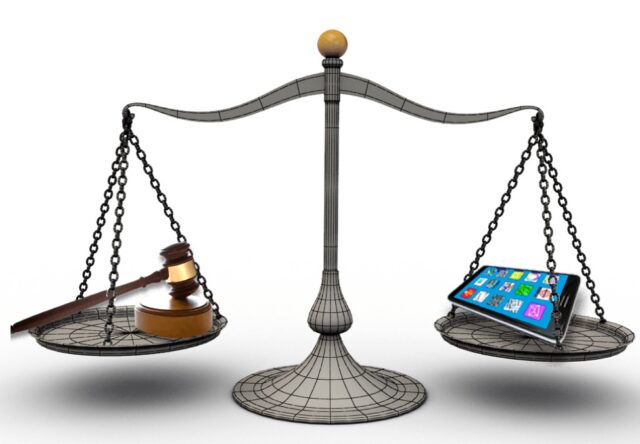
The wheels of justice turn slowly but grind exceedingly fine. It’s the oldest of old sayings, dating back to ancient Greek times, and we can say with a wry smile that some things in life never change.
The problem is that legal wheels turning at a snail’s pace and taking years to rule on the slightest matter might have been a minor annoyance for the Ancient Greeks, but can be completely at odds with our 21st-century pace of life. Here, we look at three diverse cases where technology is out-pacing legal reform.
Cybersecurity
It’s not just individuals and businesses that can be victims of cyber attacks. In recent years, there have been dozens of attacks on government systems, from the Australian Parliament House network to the US Department of Homeland Security. The US Secretary of Homeland Security says the potential consequences of cyber-attacks make them a bigger risk than physical attacks.
Intelligence officials place the blame for the most serious attacks at the feet of a “nation-state.” However, existing legal frameworks make attribution next to impossible, as the attacks do not originate from state organs, but from unknown individuals buried in cyberspace and provide a shield of plausible deniability.
While international law continues to protect states from responsibility for the actions of non-state actors, it will be impossible to prove accountability.
Online Gambling

The global iGaming industry generates around $60 billion in annual revenue. Much of that has come about due to quite rapid reform of sports betting laws in more than 30 US states over the past three years. However, where other forms of gambling are concerned, it is a different matter.
Online poker is a prime example. More than 60 million Americans play poker over the internet from their phones and laptops. As the online poker scene continues to grow, it is only reasonable for every poker player in the US to ask is poker legal in my state?
The answer is not always clear. Online poker rooms are accessible in most US states, and even where they are supposedly prohibited, the law usually only applies to running a game for money, not participating in one.
It leads to confusion, and a “worst of all worlds” where poker is still played for real money but at offshore sites, so there is not even any tax revenue. However, ingrained attitudes and long-standing compacts with Native American tribes make any meaningful changes difficult to achieve.
Cryptocurrency
Bitcoin has been around for more than a decade now, but the truth is that many lawmakers and regulators still don’t know what to do with it. The collapse of FTX was a highly visible example – and a highly embarrassing one for regulators.
To be honest, it was always going to take something of this scale to galvanize governments into action, something that is now happening around the world.

Last March, President Joe Biden issued an Executive Order that essentially gives the entire US government the job of coming up with a workable strategy to regulate digital assets. The EU, meanwhile, has also been charged to get its shop in order.
Marijuana
If you thought the topic of gambling law was controversial, try spending a day debating the pros and cons of cannabis legalization. Across the US, there is a general trend towards doing so, and it is a pattern that is also being seen in Europe. The island nation of Malta blinked first in becoming the first EU nation to fully legalize.
It is right that this kind of topic should be subject to lengthy debate, especially as far as recreational weed is concerned. Some argue that legalization “normalizes” cannabis use among youngsters, while others say it removes the underground supply network and thereby makes it harder for those who are underage to buy it. These are complex and multi-faceted topics.
Thinking long and hard about legalizing recreational weed is the right and responsible thing to do. The harder area to justify is among those jurisdictions, including countries like the UK and US states like North Carolina, where medical marijuana is still difficult to obtain.
Clinical evidence is such that there is no doubt of the benefit that medical marijuana can bring to relieve certain symptoms. Yet legislative delays still stand between those living with severe medical conditions and the therapeutic product that doctors prescribe.
Online abuse

In June 2015, the US Supreme Court ruled in favor of Anthony Elonis, saying there was nothing illegal about his posts on social media describing his desire to murder his estranged wife as there was no evidence that he intended to follow through and commit the crime. This one case demonstrates the uncertainty surrounding one of the biggest social risks of our era.
While most states have passed state laws that to some extent address cyberbullying and online harassment, these are unevenly applied by officers who are all too often either uninterested or uninformed.
They are also next to impossible to prosecute over state lines, and there is no recourse to federal law unless the abuse is discriminatory, is based on a victim’s race, gender, sexuality, religion, etc.
The situation is similar across the Atlantic, where a contributor to a government-led consultation on the topic compared online abuse in the 2020s with domestic abuse in the 1980s.
She remarked: “People used to say it was just something that happened. Police didn’t step in on disputes between husband and wife, but every part of society changed when prosecutions started being brought.”
Reforming the law itself
Some argue that the way laws are made and reformed is itself in need of reform. Commentators estimate that there is a lag of about five years between technological change and legal change.

While law firms still work in a largely paper-based world, and one far removed from the technology about which it is ruling, that gap is only going to get bigger. One thing is certain – it’s a problem shared by state, federal, and international lawmakers.












